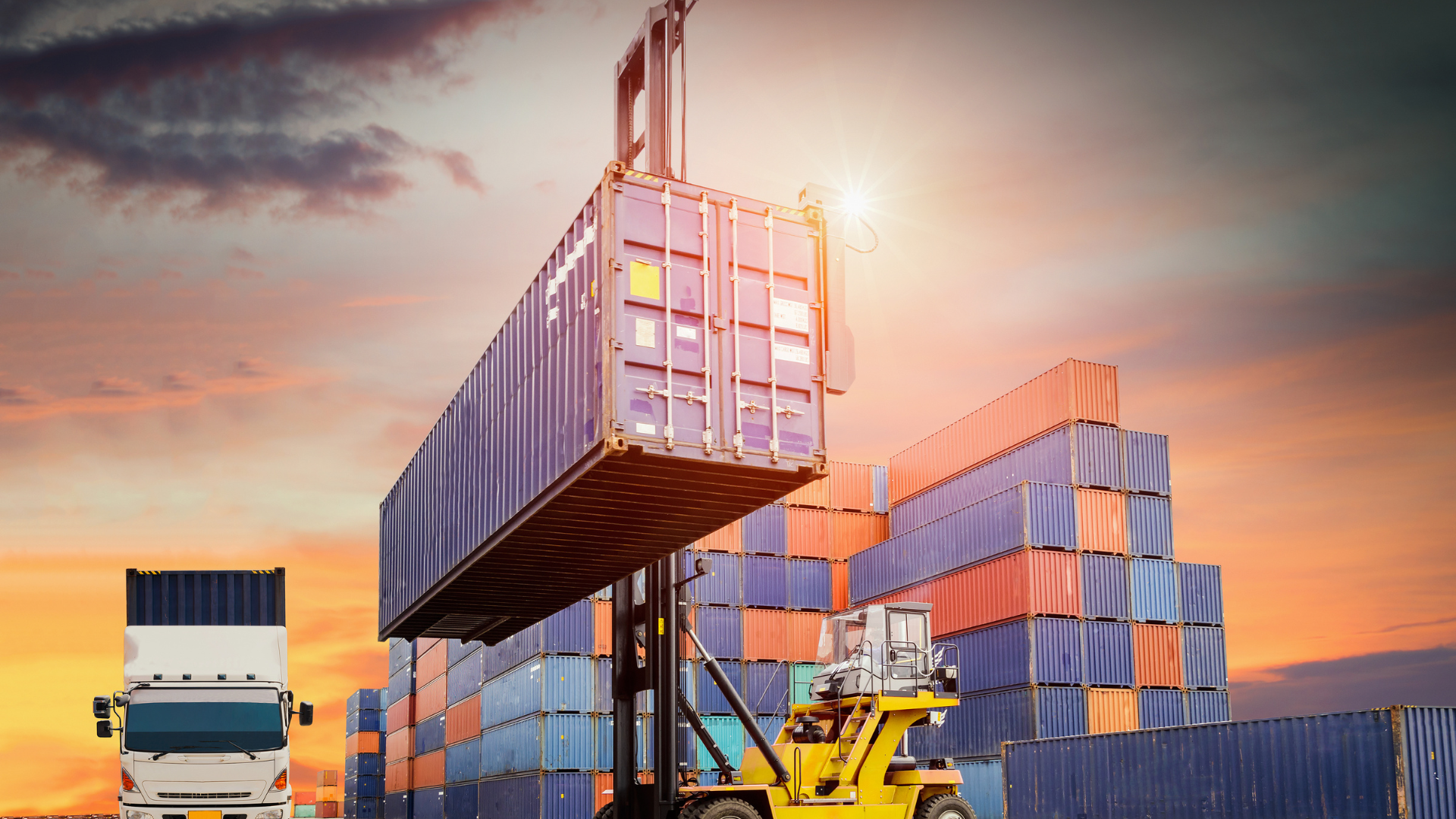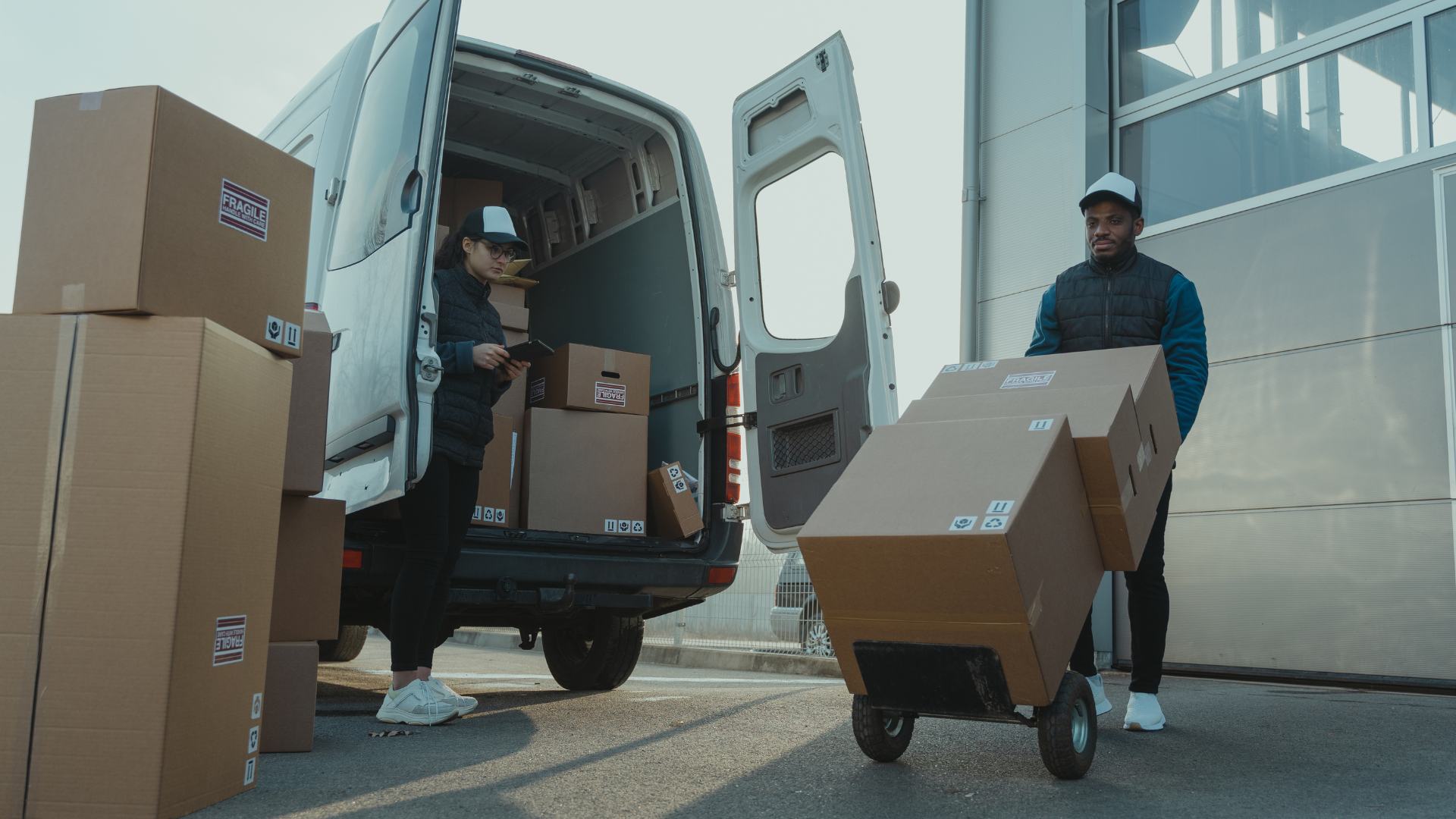If you are thinking about starting a logistics business or even want to expand it into a transport and logistics business, for example, then you are going to need a solid business plan that will take you from something basic to a successful logistics company that you are proud of.
Getting into this industry may be daunting as there are a lot of logistics companies around so it is competitive, but you can be successful if you take your time to go through what you need and hire the right people to get your business at the front line for a variety of logistical needs.

What exactly is a logistics business?
Some background would be beneficial here, especially if you want to know exactly what you are getting yourself into and on what scale. A logistics business is all about getting goods from one location to another by aiding other businesses.
They want something moved, you are there to help them complete that mission. Logistic companies can move a variety of things from the minute to the exceptionally large. Hopefully, it can be done on the same day, but that depends on location, time of day, stock, and so on.
Not all logistic companies are the same, some will be part of the bigger picture, rather than do everything. They may be part of the transportation, packaging, shipping, running of the warehouse, etc., you need to decide what type you want to be, whether it is a transport and logistics business you want to run or solely focus on the warehousing side.
Types of providers
As mentioned briefly before, there are different types of logistics businesses around. With your own logistics company, you will need to set out a business plan that works with what you want to provide. Down below are different providers, there are five main ones to check out.

1PL – First Party Logistics
This is where a business will handle its operations internally. They will not outsource their work to other providers, but rather handle them themselves with their own transportation, with full responsibility on them for shipping the product/s and storing them.
They do direct transfers of goods, e.g. farm to market. This may apply to smaller-scale businesses, that do local transport of goods. They are very self-sufficient. This may be a sole proprietorship business, which will keep things contained.
2PL – Second Party Logistics
This is where you will have assets such as ships, airlines, and trucks to transport goods. You will also handle the loading and unloading of whatever is in your containers and make sure the paperwork is all in order.
A business that doesn’t have transportation, can use 2PLs to help their stuff get from one place to the next without it completely relying on them. So, if a business needs multiple products taken to their destination and they are unable to do it themselves, they will call in this transport business to make sure it gets to where it needs to efficiently and on time.
3PL – Third Party Logistics
You may not be familiar with the term, but this type of provider is quite commonplace. This provider’s responsibilities include packaging items, storing them in warehouses, and then dispatching them with their transport to the designated destinations. To establish a 3PL enterprise, you will likely need to establish a series of warehouses (by engaging a general contractor) and an extensive transportation network since they are the two main components of operating this kind of logistics business.
Additionally, you may also have to consider the cost of construction, maintaining the warehouses and transportation network along with hiring staff to manage the day-to-day operations.

4PL – Fourth Part Logistics
These providers are also known as Lead Logistics Providers (LLPs), they provide management and are the single point of contact for supply chains. They will oversee the management of transport.
They will also employ 3PLs and other transportation services according to websites like Seaspace International Forwarders. They also supervise warehouse activities. Basically – they are involved with all the moving parts of the supply chain.
5PL – Fifth Party Logistics
The fifth and final provider is one that can be considered new to the logistics industry. It combines 3PL and 4PL together. This type of provider will work with in-house departments, so they can manage logistic solutions completely by thoroughly planning and executing everything.
They can negotiate rates with different transportation businesses, e.g. air based delivery services, trucking companies, etc., so they can manage global transport as well as domestic transport.
As the e-commerce sector has grown, since online ordering has become so popular, so has the use of 5PL providers to help them manage and transport their products. 5PL will do a lot to make sure that customers are satisfied, which is why efficiency is at the top of the list.

How to start a logistics company
Every business has to start as a foundation and be built on, from deciding what services you will provide to whether you want to be a limited liability company (LLC) or create a limited liability partnership (LLP). Factoring in things like operating costs, insurance coverage, international services, and liability protection will help you create a clear view of what type of business owner you want to be.
Here are some things to think about before you start your a logistic business so you can map out where you need to start and what you need to continue to do to adapt and change as advancements happen. If you are focused on making a successful logistics business and take on board professional help, you may stand a chance at going toe to toe with the best of them.
Create your business plan
Creating a solid business plan will help you maintain your focus on the areas you need to. You can begin by conducting some market research on the industry and sector you are going into.
You can do a competitive analysis on your competition, see what their strategies are, what their price points are currently, and what type of customer service they provide. You can also use your research to see if there are any gaps in the industry and if you have the potential to fill them. You can identify your target market and create a marketing plan aimed at them.
Finances
Within your plan, you need to think about your finances and how much capital you may require from investors or banks, as well as overhead costs, and how you’ll manage cash flow.
The capital required should be based on many factors. These could include the staff, the operations, the premises of work, the cost of inventory, and more. Hence, while deciding how much money you need, you would likely need estimates from commercial contractors jacksonville fl (or elsewhere) for the construction of the workspace; an idea of how many employees you need and under what salary bracket; the cost of machinery and inventory, and so on.
Putting together how the finances will be used and what you project to happen with the business will help you take a step forward. If you already have a positive reputation with investors, maybe from previous business dealings, then this can also help you.

Operation
How will you operate your business? Are you planning on being a total transport and logistics business, or just playing a part in the logistics industry? Will you be looking on an international scale that delivers to multiple countries, or will you be focused on cargo that needs to cross state lines? You’re transporting goods, so you need to look at how you can legally operate that side of things. New batches of employees can be trained with the help of JJ Keller Training Competitor courses, or others like it. But to get the business moving, you should employ some individuals who have had formal training in different processes for logistics. This can help you create a system where there is already an existing workforce with another batch on the way.
Vehicles
Checking out the significance of DOT number registration as well as the importance of why having an assigned MC operating authority number is essential if a business wants to transport any goods, will keep you in line. If you have fleet vehicles, have you checked out and applied for commercial vehicle registration as well as a commercial driver’s license for all your drivers? Because it is incredibly important to have to ensure you meet compliance.
Manage your finances
There will be a lot of costs that come with running a logistics company, not only is startup capital important but how that money is used as your business grows needs to be factored in. You have to look at setting up a business bank account for everything to go into, no matter the size of your company.
If you are working on a small scale, you may only have a few employees, but you will still need to make sure that they have the proper training which you will provide at your expense. You also need to look at how much you will pay your employees, the costs of maintaining your fleet, fuel, licensing fees, and rental costs for transport or warehouses.
You will also need to check out insurance policies that will not only cover damage to your property but if there are any personal injury incidents that may arise. If your business is not prepared for these, you could look at losing quite a bit of money and have your company go under. Commercial property insurance and commercial general liability insurance will go a long way in covering you.
Taxes
It is also crucial to remember how you will be paying your taxes, so taking into account what taxes you will owe, such as local, state, and federal taxes, will stop you from being caught unawares. You’ll have to register to get a federal tax ID number.

Legalities and Licenses
It will vary in whichever state you operate your logistics business in, but you will still need to be licensed to legally operate within your parameters. If you are planning on taking your transportation business international, then you will have to look at border crossings as well as what legal terms you need to meet with global transport.
As previously mentioned, insurance is very important, but it does not just apply to damage to a warehouse or an employee, it also relates to shipping, delays in transportation, and road accidents, to start with. They can be quite pricey, however, they are needed and will make things a lot easier to run your business.
Quality staff
The staff you hire will shape your business. Hiring drivers, warehouse workers, and administrative personnel that suit your outlook and work with you, can make this process easier. Make sure that you hire qualified staff, comply with all the regulations, and have them undergo the dot drug test and any other tests that are necessary. A successful transportation business/logistics business/trucking company needs employees that will work and strive to move the business forward.
Hiring drivers
If transportation is your main focus, then you need drivers with clean records and a clean bill of health. You will need to collect medical certification from them as well as road test certifications, motor vehicle records (typically three years of them), and their history of safety performance attempts. You have to be sure that they are the kind of drivers you are looking for.

Obtaining clients
Last but certainly not least, building a steady client base will get you far. You need clients to operate your business and make a name for yourself. But how do you go about getting them? Marketing is one area of importance when reaching out, but it is also essential that you have face-to-face meetings with potential clients.
You have to reach out and show them your plans and what your company is all about, how you want to run this new business of yours and what you can do for them. They are your target customers so you have to put your face out there for them to see how your business can support them and why it would be worthwhile to use you.
Conclusion
Hopefully, this article has helped you not only with how you start a logistics company but how to run a logistics company. Whether you are a piece of the puzzle or you want to do the whole lot, your business will thrive if you take the time to carefully plan out what you need and how to go about it. It can be a competitive industry, but that doesn’t mean it isn’t able to let anyone else in.






